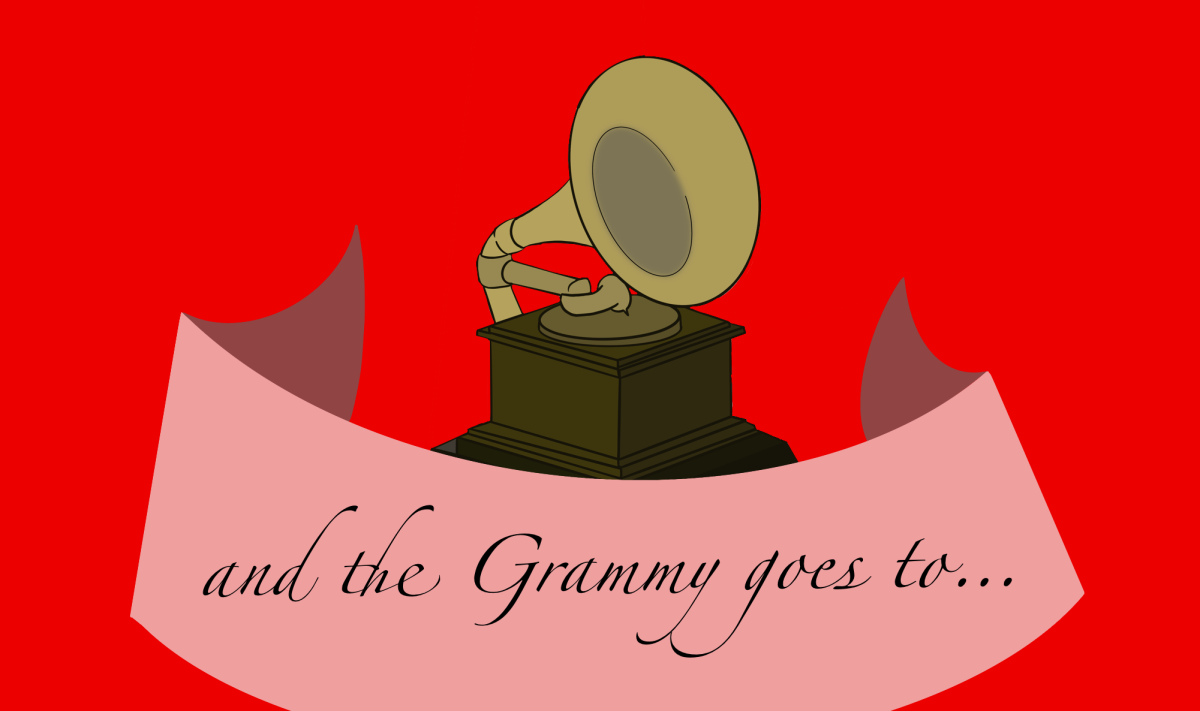The Grammy Awards are arguably the biggest night for music artists worldwide, showcasing their hard work in music over the past calendar year. The Grammys also host yearly controversy that helps push viewership and engagement, thanks to the lovely fans that ignite fan-base wars or echoes of their fav artist being “robbed.” This year, however, valid criticism has been brought to the forefront by stans and Grammy viewers as a whole regarding the topic of the coveted Album of the Year (AOTY) award. What exactly qualifies certain musicians over others?
This is a question that many have asked over time, and a question I am joining to ask, by exploring past AOTY snubs to black artists, specifically female black artists, the current snub at the last Grammys, and what message the Grammys are intentionally or unintentionally sending.
AOTY category and winning history
Firstly, it is essential to look at this category through the years and what it traditionally entails to be a recipient of the award. The Grammys are vague about how their members vote but have made it clear that commercial success is not compulsory for an award to be received. However, albums in the AOTY category are almost always commercially successful, except for one or two non-commercial successful artists. According to the Grammys, “Voters in this category are expected to consider the quality and artistry of the collection of tracks as a whole.”
Since the inception of the Grammys in 1959, only 11 black artists have won AOTY, and the last black woman to win was Lauryn Hill for “The Miseducation of Lauryn Hill” in 1999. A layman’s interpretation of that is in this new century, and in the past 23 years, no black woman has made an AOTY quality project. This would make no sense when Rihanna, Mariah Carey, and Beyoncé have released some of their best bodies of work in the past two decades. Although the voting is subjective, as is music, it is interesting that the subjectivity affects a certain demographic more than others.
This year, SZA was yet another casualty of the AOTY snub, with critics and music lovers begging the question of what it takes to win, as SZA’s SOS “topped the Billboard 200 for 10 weeks longer than any of this year’s other album of the year nominees.” So if it is about commercial success, Taylor Swift did not have the most commercially successful album. If it was about critical reviews by professional music critics and audiences, Metacritic, which is a well-known critics resource with a culmination of professional critics from sources like Rolling Stone and The New York Times, has SOS by SZA at a 90 while “Midnights” by Swift is at an impressive but lower score of 85. So what is the yardstick for AOTY, especially if an artist who has won this award three times before gets to win it again? What does winning this award truly entail?
Taylor Swift’s artist history and what her win means for the Grammys and other artists
My criticism of Swift winning AOTY is not for her talent, as she is a talented artist, but rather for her lack of growth. For most artists, playing it safe and staying in a box is acceptable. For an artist at the level that Swift is portrayed, it is worrying that her music hasn’t had similar evolving trends as her peers. To be at the same level as artists who are her industry peers and to be given similar — at times more accolades — is sometimes baffling, as these artists have reinvented and made music that is often challenging to their past body of work. But it makes sense when you factor in her role in the industry as a conformist to traditional music paths and the quintessential all-American girl. Swift is the safe choice as her music rarely, if at all, disrupts any core American system. Swift has a formula that works for her. As an artist whose fan base toots her horn and fervently defends her, the mantra Why fix it if it ain’t broken? comes to mind. For others on the outside trying to join in on the fun and see what the hype is about, the hype doesn’t always quite match up to expectations, especially when considering who she’s up against.
Jay Z
Jay-Z’s acceptance speech is the perfect conclusion to my views on the 66th annual Grammys, and although people want to draw parallels to Kanye and his infamous speech, this was not the same. First, he was giving an acceptance speech for his award, but essentially, his speech was not directed at anyone specifically, especially not Swift. Instead, his speech was about the system in which the Academy operates. According to their standards, Beyoncé is their golden star, as she is their most awarded artist, but in the same breath has not been awarded the coveted AOTY, which would signify that in the past two decades or so, she has not put out a cohesive album that has been successful enough, critically acclaimed and impacted the world in comparison to other artists, which is categorically false, as she is known for her conceptual, successful critical acclaimed bodies of work. Refreshingly this year, fans of Swift amongst others, are starting to understand the AOTY criticism when it comes to Swift, as many have stated that Midnights is not her best work in recent times, but somehow still won over albums like Do You Know That There’s a Tunnel Under Ocean Blvd by Lana del Ray — who has never won a Grammy, by the way — “The age of pleasure” by Janelle Monae, and SOS by SZA.
In conclusion, the Grammys have a habit of snubbing black artists for the AOTY category, and the reasoning behind such snubs is unclear as they sometimes seem to be based on the personal preference of the voters, rather than objective critical reviews and varied audience demographic reviews. With the AOTY category, there seems to be a disinterest in music made by black artists, even when they are at the top of their game in the industry. This begs the question of what exactly qualifies certain musicians over others, is it who the voters and the Grammys like or who put out a project that was better welcomed by critics and a varied demographic alike?





















Charles • Feb 16, 2024 at 1:15 pm
Sza definitely deserved album of the year, I really don’t know why artists still feel the need to take part in the Grammys honestly, for Beyoncé to not have won AOTY through her whole career is actually so wild and it doesn’t even make sense.
Eldana • Feb 13, 2024 at 9:41 pm
This was such a great take and deep dive on one of the most important Grammy awards the album of the year and leaves us questioning how the winners specifically for this category are chosen. Thank you for this!!